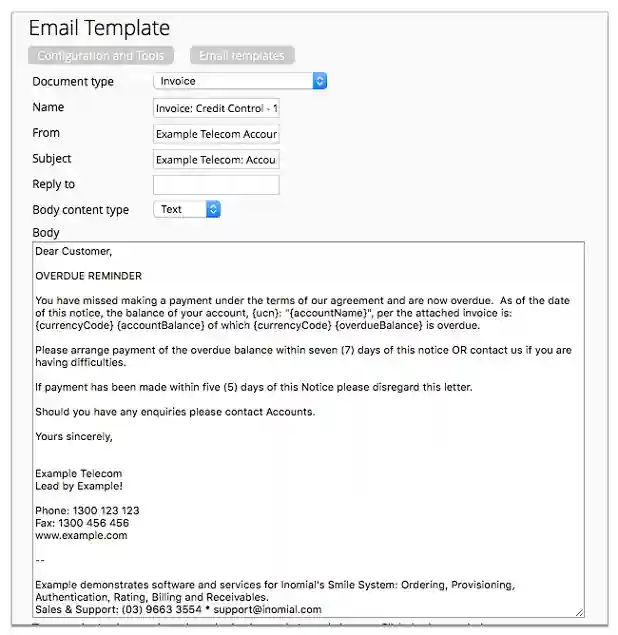An invoice email template is essential for ensuring timely payments and maintaining cash flow, especially for freelancers. To write an effective invoice email, include a clear subject line, attach the invoice, and provide all necessary payment details. Use a professional, sans-serif font and ensure your company's branding is visible. Templates can help streamline this process, offering consistency and clarity. Implementing these strategies can reduce payment delays and improve client communication. For best results, regularly update your templates to reflect any changes in your business practices or branding.
An invoice message template can be a key component of your business. Freelancers need to keep their cash flow consistent. That means getting paid in a timely manner is crucial. By clearly communicating payment information and schedules and using adequate invoice templates, you can avoid delays and hurdles that slow down your growth.
A great way to achieve this is by learning how to write an invoice email. In this article from Bonsai, we will give you the essential pointers to craft a persuasive invoice email, and then we’ll provide some excellent invoice email message examples and templates to inspire you.
1. Create the invoice
Creating a professional freelance invoice helps when you want to get paid on time. The first step is to ensure you have all the information you need in the invoice file. There are three main things to keep in mind:
1.1. Use a clear sans-serif font
An important part of how to write invoice email is the font.The logo of your company might include cursive or stylized writing. For branding purposes, this is perfectly alright. However, when it comes to finances, clear communication is the most important rule.
Use a font that is easily readable in digital form, such as Arial, Helvetica, or another sans-serif variety. The last thing you need is to deal with accounting mistakes or lost revenue due to a confusing advertising invoice template, for example.
1.2. Include your company information
On the invoice itself, be sure to include standard information about you or your company. Online invoice makers can help you avoid any confusion about who the invoice is from. Furthermore, it provides greater credibility and an easy way to contact you.
Include the following information:
- Name
- Company
- Street Address
- City, State, and Zip Code
- Date
For better readability, align the text to the left of the email and use text that is large enough to see without straining.
1.3. Add your client’s address
Under the date, add the recipient’s address and information. Just like you did above, including their name, street address, city, state, and zip code. Keep this portion in the same format you used for your address previously.
It’s recommended to address your influencer invoice template or training invoice template, for example, to a specific person in the company. Otherwise, you might need to send the invoice to a certain department or third party that handles payments for that company.
Be sure to ask your client who will be taking care of the invoice, and if in doubt you can copy multiple people on the invoice.
2. Attach the invoice
Everyone makes mistakes. But when you’re learning how to write invoice emails, you don’t want to have errors. Having “attach the invoice” on your checklist might seem like overkill, but it’s not.
You should be clear about how you bill your clients as they might not know how much to pay, where to send it, or who to speak with about it. This could disrupt your cashflow and cause unnecessary hassle.
3. Write the subject and body of the invoice email
Once you have created and attached your invoice template for email, it’s time to think about the rest of the email. With an invoice message template, you want to strike a balance of professionalism and friendliness.
Let’s start with the first thing your recipient will see:
3.1. How to write invoice email subject lines
"Email has an ability many channels don't - creating valuable, personal touches at scale." - David Newman
When you’re asking for payment in an email, your subject line is crucial. According to research by Experian, emails with personalized subject lines are 29% more likely to be opened.
Personalization has been shown to increase customer engagement, especially when people are inundated with so many messages every day. That alone is a great reason to customize your invoice emails.
Address your email to one specific person and include their name in the subject line whenever possible. This will boost open rates and ensure that you get paid promptly for your services. One reason for this is that 69% of recipients will use the subject line to tell if the email is spam right away.
Here is an example of an email subject for invoice messages that can be scaled across your entire business: Subject: Attn: (client’s name) — Invoice (# of current invoice) for (name of business).
This immediately lets the right person know that they need to take care of a new work invoice template in an efficient way.
When you’re with Bonsai, you can get paid on time, every time. Join our platform today to grow your freelance career faster.
3.2. How to write the body of the email
While it might be simple and effective to simply attach the invoice without any words in the email body, it could come off as cold or nonchalant.
Thus, it’s a good practice to write a few words about the contents of the email. This has value in clarifying the invoice, but it also makes the email seem less transactional.
However, don’t do it. In the words of Seth Godin: "Why waste a sentence saying nothing?"

Here is a template to illustrate what we mean:
Subject: Attn: (client’s name) — Invoice (# of current invoice) for (name of business).
Good (time of day) (client’s name),
The invoice regarding (relevant project information or reason for invoice) is attached. If the file does not load, please click here instead (link) to access the invoice.
If you have any comments, questions, or concerns, please feel free to contact me at your convenience. (Include your contact information)
We appreciate choosing to do business with us at (company name). We look forward to helping you again in the future.
Best Regards,
(Your name)
(Your title)
(Company name)

4. Deal with past due invoices like a pro
Having a simple, prompt, friendly, and professional freelance invoice template is a great start. But it’s no guarantee of success. You are bound to deal with challenges in the business world.
Sometimes, this comes in the form of a late payment. Oftentimes, this is simply due to the client forgetting to make the payment or overlooking it in their daily swarm of emails.
Let’s take a look at some examples to help you overcome this:
Followup invoice email template #1
Subject: Attn: (client name)- Follow Up — (invoice #) for (client’s business name).
Hi (client’s name),
I’m sure you’re busy and that this email likely got lost in the shuffle. This is just a followup with the original invoice attached regarding (product or service provided).
If you have not already paid, please do so via (payment methods accepted). However, if you have already paid, please disregard this email.
If you have any comments, questions, or concerns about the invoice, please contact me at (preferred contact method).
We look forward to continuing to earn your business in the future.
(Your name)
(Your title)
(Your company name)
Followup invoice email template #2
This invoice email message example takes a slightly more direct route.
Subject line: Invoice (# of invoice) for (product or service) due (Date)
Hi (client’s name),
Hope all is well! Please see the attached invoice (#) for (product or service), due on (Date). If you have any questions, don’t hesitate to contact me here (preferred contact method).
Best regards,
(Your name)
You might also run into a declined form of payment by a client. If their payment does not go through, send an invoice email message to let them know they still need to pay. Here is an example:
Followup invoice email template #3
Subject line: Invoice (#) Overdue for (due date)
Hi (client’s name),
I hope all is well. We haven’t received payment yet for invoice (#) due (date). Please proceed with payment or advise us of when we can expect to receive it. And don’t hesitate to contact us with any questions.
Best regards,
(Your name)
Now you know some effective new invoice email message examples. As you can see, the email invoice templates above are friendly, personalized, and professional. That’s exactly what you’re aiming for with this type of email.
A professional invoice email can help your cash-flow
Startups and freelancers need to be diligent about their finances. Getting paid on time is the first step to ensuring that you don’t run short of cash reserves.
Adhere to the tips and templates above in order to keep your business running smoothly now and going forward. They can give you guidance on how to write a great invoice email message. And now that you know how to write invoice emails, the only thing left is action.
Sign up with Bonsai to start creating professional invoices and better emails.






